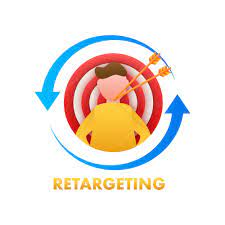Getting your message to the right people is essential for any business, and digital marketing can be a great tool when used correctly.
With proper implementation, you can maximize visibility by targeting an audience most likely to buy from or engage with your product or service.
Reaching the right demographic without wasting resources or time is possible with strategic planning and targeted advertising campaigns.
Keeping up with fluctuating trends in online behaviors requires an understanding of how best to target potential customers – this blog post will explore that topic further and provide actionable tips on how to reach the right audience with digital marketing in 2024
1. Learn What’s Important to Your Audience
As a business owner or marketer, it’s important to understand who your audience is and what matters to them. Without this knowledge, you won’t be able to reach the right people with your digital marketing efforts.

To effectively engage with your target market and ensure that they take notice of your message, you need to know their likes, dislikes, preferences and needs. This will help you customize content and tailor digital marketing campaigns that are genuinely interesting and relevant.
The most successful digital marketing campaigns start with an in-depth understanding of the target audience.
Before launching any digital marketing activity, ask yourself these key questions: Who do I want to reach? What do they care about? How can I get their attention?
Knowing what matters to your customers allows you to create customized messages that appeal directly to their interests and needs.
It’s also important for businesses to stay up-to-date with industry trends and current events so they can adjust strategies as needed.
Without staying informed about the latest news, it won’t be possible for companies to accurately communicate their messages in a timely manner or adapt quickly when circumstances change.
A comprehensive understanding of current affairs allows brands to craft thoughtful content that resonates with their audiences on an emotional level as well as a logical one.
To get even closer to your target market, you should also consider paying attention to user reviews from online platforms like Amazon or Yelp as well as comments from social media accounts such as Twitter or Instagram.
Taking into account customer feedback can provide valuable insight into what types of content are resonating best with certain demographics and which strategies should be used going forward.
Knowing how users feel about the company’s products gives businesses an advantage when creating tailored messaging that speaks directly to their target audience’s needs.
Finally, another great way for businesses to better understand what matters most to their customers is by conducting surveys or focus groups composed of representative members of the target audience.
By doing so, companies can gather direct feedback on things like product features, pricing structures, and overall user satisfaction levels – all of which can be used when crafting specific digital marketing campaigns designed specifically for those individuals.
At the end of the day, developing a strong understanding of who comprises your target audience is essential for driving meaningful engagement through digital channels.
The more you know about what matters most to them, the easier it will be for marketers and business owners alike to create effective campaigns that draw potential customers in and leave lasting impressions on them over time.
With some careful planning and consideration of customer feedback along the way, digital marketers can craft content that truly speaks volumes about the company’s commitment to its audiences – ensuring continued success for years down the line!
2. Speak Your Audience’s Language
Digital marketing has become a key part of modern-day advertising and promotion, with businesses around the world investing heavily in reaching their target audience through the most effective channels.
To ensure that your digital marketing campaigns are successful, you must take steps to really understand who your target audience is and how to speak their language.

Speaking to your target audience in a language they understand can be crucial for success in any digital marketing campaign.
This involves getting to know more about them and understanding their preferences, desires, and motivations.
By knowing what makes them tick, you can craft content that resonates with them on a deeper level.
If you want your messages to stand out from the sea of competing brands and products, it’s essential that you communicate in the same style as your target customers.
The first step to speaking your audience’s language is researching who they are and what interests them.
You should look at demographic data such as age, gender, geography, or income brackets to get an idea of who your ideal customer might be.
You should also consider psychographic data like lifestyle choices, interests, or values when trying to further define this group of people so that you can create relevant messaging tailored specifically for them.
Surveys and focus groups can also help provide valuable insights into how people perceive your brand or product and what kinds of language they prefer.
When crafting content specifically designed for these members of your target audience, it’s important not only to use the right words but also present information in a way that speaks directly to their needs and wants.
For example, if you’re targeting young adults then a casual tone will likely be more engaging than using business jargon; likewise, If you’re targeting senior citizens then using simple language that is appropriate for their age group may be more effective than using slang words or terms associated with popular culture trends among younger generations.
Additionally, understanding which social networks are popular with different audiences will allow you to tailor content even further so it resonates on those platforms more effectively too.
In addition to speaking in a way that resonates with each specific segment of your target audience, another key aspect of effectively reaching them with digital marketing is being aware of cultural sensitivities and nuances within different countries or regions where applicable.
Businesses need to be mindful when addressing certain topics or communicating specific messages as different cultures can have vastly contrasting views on particular subject matters, even if they have similar demographics or psychographics overall.
As such it’s essential for companies who operate internationally or across multiple regions/countries to be aware of how best to communicate with each area’s distinct culture without offending anyone—even seemingly small nuances such as changing up colors between countries based on local significance can make all the difference!
Overall speaking an audience’s language is one of the most important steps when trying to reach potential customers through digital marketing channels –
It builds trust between brands and consumers by helping companies come across as genuine rather than simply “pitching” products or services which often leads people away instead of towards what you’re offering!
By taking time to learn about who makes up your target market and understanding how best to communicate with them based on shared values/interests/etc., businesses can ensure their digital marketing efforts are truly successful – leading not just towards greater brand awareness but also long-term loyalty from consumers!
3. Know Your Organic Keywords
Organic keywords, a marketing tool often employed by businesses and organizations that requires extensive research and planning in order to effectively reach the right audience, are an essential element of any successful digital marketing campaign.
Knowing how to identify and use organic keywords is key for any business or organization looking to maximize its online visibility and grow its customer base.
In essence, organic keywords are words and phrases that web users type into search engines to find information, products, or services related to a particular topic.
By strategically identifying and using the most effective organic keywords, businesses can ensure that their content is more likely to be seen by potential customers that are actively searching for what they have to offer.
When it comes to choosing the right organic keywords for your specific business or organization, there are several factors you need to consider.
First of all, make sure you have a clear understanding of who your target market is and what they’re looking for when it comes to your specific product or service.
This will help you select more relevant keywords as well as better assess which ones will result in higher returns for your business.
Conducting keyword research should also be part of your strategy when selecting organic keywords for your digital marketing campaigns.
Most search engines provide keyword suggestion tools that enable you to easily generate lists based on popular searches related to your chosen industry or market segment.
Taking some time out of your day in order to brainstorm additional relevant terms (and variations) based on these suggestions is also highly recommended as it can help you expand upon existing search queries related specifically to what you’re offering.
It’s also important to remember that when optimizing content for organic search results with keyword phrases; it’s best practice not to overdo it as this could cause your pages/content not only lose its relevance but it could also be considered keyword stuffing – something Google frowns upon – resulting in decreased rankings in SERPs (search engine result pages).
Doing so would render your efforts counterproductive as this goes against Google guidelines; therefore it’s best practice not just creating content solely with SEO in mind but rather by focusing on providing high-quality content backed up by creative use of targeted keyphrases – something both readers and search engines alike appreciate!
Finally, when striving for optimum exposure via organic search results; don’t forget about local-specific targeting if applicable (i.e., if you own a brick-and-mortar store).
Adding localized terms such as state/region-specific geographic names can help increase website visibility within those specific areas while also potentially giving results higher ranking than other competing websites lacking such geo-targeted terms & phrases due its relevance factor – something many marketers often overlook yet greatly benefit from!
Knowing how to effectively select appropriate organic keywords is one of the most important elements of any successful digital marketing campaign – making sure you cover all bases will enable businesses & organizations alike to ensure maximum return on investment while helping them reach out directly toward their desired target audience!
4. Stay Top of Mind with Retargeting
Retargeting is a powerful tool in digital marketing and one of the most effective ways to stay on top of mind with potential customers.
Retargeting allows businesses to target users who have already visited their website or interacted with their brand in some way before.
This helps increase brand recognition and loyalty, which results in higher conversion rates, repeat customers, and greater success for the business.

At its core, retargeting is a digital marketing strategy that focuses on engaging people who have already expressed interest in your company’s product or service by showing them targeted ads based on their previous browsing behavior.
By strategically targeting these users through relevant ads, businesses can stay ‘top-of-mind’ and ensure they are the first choice when a customer is ready to make a purchase.
Retargeting also allows you to get more out of your search engine optimization (SEO) efforts. SEO campaigns are often expensive and require long-term commitment from businesses.
Retargeting can help keep you at the forefront of customer searches without needing to commit as much time or money to SEO campaigns.
Retargeted ad campaigns can be incredibly successful in increasing conversions, driving sales, and building brand loyalty.
The best part about retargeting? It’s incredibly easy to set up and manage; usually requiring only an initial setup cost and then regular maintenance work by your digital marketing team.
Since retargeting works by tracking user behavior across multiple websites (using cookies), it’s important that your business has clear cookie policies in place so as not to violate data privacy laws – such as GDPR or CCPA – or risk alienating potential customers over privacy concerns.
Additionally, it’s important to make sure your retargeted ads are relevant to what your audience is looking for so that they don’t become annoyed at seeing repetitive ads that aren’t actually useful for them anymore.
Finally, it’s worth noting that other marketing channels like email newsletters or social media campaigns may be more appropriate for certain types of campaigns than retargeting would be – so it pays off to do research into which channel will yield the best results for your particular goals.
When used correctly though, retargeting can be an extremely effective way of staying top-of-mind with potential customers while still keeping costs relatively low compared to other forms of advertising or marketing efforts.
Quick Links:
- Why Engineers Should Join Digital Marketing
- Could MBA Graduate Be A Digital Marketer
- Scope Of Digital Marketing
Conclusion: Reach the Right Audience with Digital Marketing
Digital marketing busts the boundaries of traditional marketing, allowing you to reach your target customers no matter where they are in their own life’s journey.
Through numerous digital strategies and tactics such as search engine marketing, inbound marketing, and content marketing, it’s possible to capture leads while they’re actively seeking out products or services like yours.
Different channels also bring different audiences together, so you can build relationships with more potential customers than ever before.
Although investing in digital marketing requires commitment over an extended period of time, its effective reach makes it a worthwhile investment.
Once you implement the right create the right mix of digital elements that best fit your brand vision and success metrics, you could be on your way to increased revenue than ever before!


